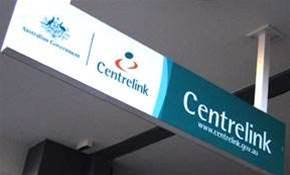The Department of Human Services has been urged to improve the efficiency of the online services it offers Centrelink customers in order to reverse the increasing rate of complaints.

The Commonwealth Ombudsman handed down the advice yesterday following an almost year-long investigation into complaints about Centrelink services.
The report comes just days after Treasurer Joe Hockey publicly acknowledged the need to upgrade the systems underpinning Centrelink’s 30-year old mainframe, which he said would cost billions.
In the report [pdf], Ombudsman Colin Neave offered up12 actions to combat a range of issues relating to communication and access, including delays and difficulties using Centrelink’s online systems.
“While I acknowledge the majority of Centrelink services are delivered without cause for complaint by customers, we continue to receive a steady stream of complaints about the agency,” he said.
“And while admittedly few in comparison to Centrelink’s total number of interactions with its customers, the number and nature of complaints suggest a gap between the agency’s commitment to service delivery and the reality experienced by some customers.”
Neave’s office outlined 40 case studies out of the 9600 complaints made about Centrelink from January 2012 to September 2013, a number of which involved issues with online services.
In one example a married couple completing an online application form were only made aware after the deadline that the form had been incorrectly entered, meaning they missed out on around $10,000 in family tax benefits.
The couple claimed they were directed to a service they did not know how to use, which was inaccessible for periods of time when they attempted to lodge the form.
Centrelink later offered the couple $2500 in compensation after admitting its online system suffered from slow response times and occasional error messages, according to the report.
Neave said while DHS was pushing customers towards online services to reduce the congestion on its phone lines and centres, it was not necessarily resulting in efficiency savings or fair outcomes for all due to barriers preventing or limiting customers from using the services - including a lack of training, information and assistance.
Other complaints were submitted by customers experiencing non-functioning online services, or being directed to online services they didn’t understand how to use.
Centrelink’s online service allows customers to claim and make payments, update personal details, transfer funds, and upload documents, among transactions.
The most common complaints, according to the report, centred around a lack of technical assistance or availability of the services, as well lost data.
DHS told the Ombudsman its online system was reliable overall and had only experienced downtime of 1.73 percent during operational hours between January 2012 to September 2013.
Centrelink offers an online service support hotline as well as physical service centres to assist customers with the system, but the Ombudsman found assistance was not always forthcoming at the centres his office visited.
“All the [customer service officers] were busy attending to other customers and there was limited assistance available. DHS has since advised us that it continues to review and refine the [front-of-house] operating model to ensure that customers receive greater assistance to use online services,” he wrote.
Centrelink also offers a number of mobile applications across Apple and Android for its online customers. The Express Plus apps were launched in mid 2012 and are available to anyone registered to transact with Centrelink online.
The Ombudsman additionally recommended Centrelink introduce a new method of storing copies of documents provided by customers to ensure the files are not lost.
In making the recommendations, the Ombudsman said he recognised DHS was at the mid-point of its five-year service delivery reform project, and said he was confident the department would continue to invest in and develop technology to improve the efficiency of its business.
“Nevertheless, we remain concerned that not all of Centrelink’s customers are experiencing improvements in service and a small number are being left behind as their access to traditional service channels reduces,” he wrote.
Neave recommended Centrelink increase the support and assistance available for customers to use online services, including addressing barriers which repel people from using Centrelink’s online platform; developing training and information products to push customers towards self-management of services; and capturing data from complaints and enquiries to use in service improvements.
He said DHS had agreed to implement all the 12 recommendations either in full or in part.



_(28).jpg&h=140&w=231&c=1&s=0)

.png&h=140&w=231&c=1&s=0)





 iTnews Executive Retreat - Security Leaders Edition
iTnews Executive Retreat - Security Leaders Edition
 iTnews Cloud Covered Breakfast Summit
iTnews Cloud Covered Breakfast Summit
 The 2026 iAwards
The 2026 iAwards












_(1).jpg&h=140&w=231&c=1&s=0)



